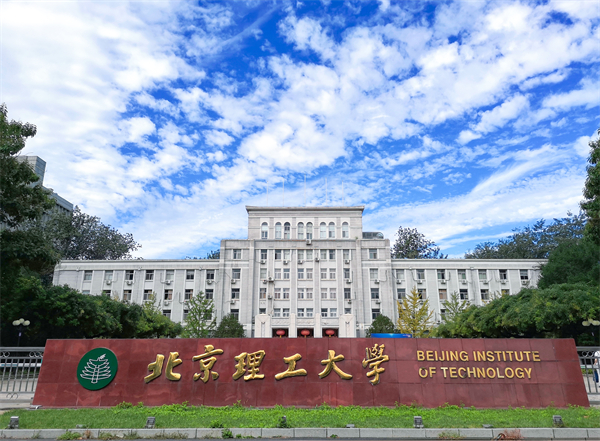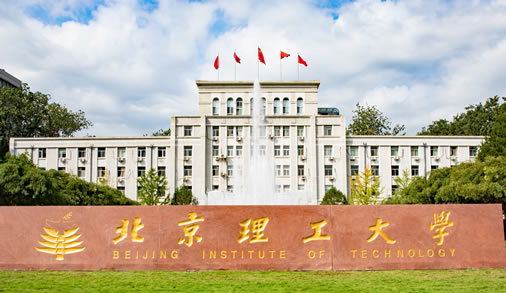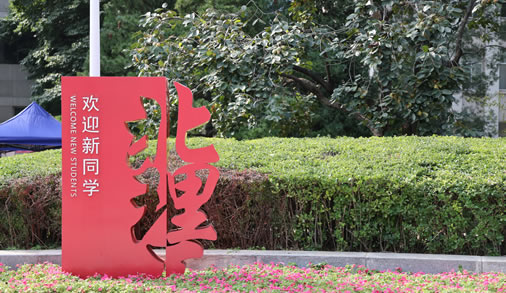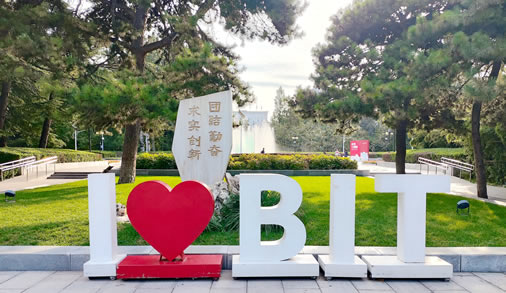

Updated: 2024-05-29

In 1940, the Communist Party of China founded the Beijing Institute of Technology (BIT), the country's first science and engineering university, in Yan'an, Shaanxi province. Since the founding of the New China, BIT has been one of the key universities in the country and was among the first to enter the national "211 Project" and the "985 Project", and to be designated as a "Top A World-class University".
BIT was originally founded in Yan'an in 1940, and moved to Beijing in 1949. In 1952, it was renamed Beijing Engineering College, becoming the first defense industry university in the People's Republic of China. In 1988, the university was renamed the Beijing Institute of Technology. Today, it is affiliated with the Ministry of Industry and Information Technology.

BIT is deeply rooted in Chinese history and culture. Its motto of "Take virtue as the principle, learn to be good at industry", its spirit of "Unity, Diligence, Practicality, Innovation", and its teaching style of "seeking truth from facts, not self-righteousness" have jointly formed the university's temperament and core values.
BIT is currently comprised of 22 professional schools, seven colleges and eight new-type educational research institutions.
BIT currently has 9 academic discipline fields and 33 first-level disciplines, all of which are doctoral programs, and 15 professional degree categories, including six engineering doctoral categories.
Physics has been added to the list of "Double First-Class" construction disciplines. Emerging interdisciplinary subjects such as cyberspace security and integrated circuit science and engineering have entered the national first echelon.
In the 2023 Soft Science Best Chinese Discipline Ranking by ShanghaiRanking, six disciplines at BIT entered the top tier in China, and 18 subjects entered the first-class tier in the country.
With the Zhufeng (Qomolangma) disciplines as backbone, BIT has developed a distinctive discipline group of "6+7+2" to accelerate the deepening of interdisciplinary exchanges and integration, and promote the significant enhancement of its capabilities in talent cultivation, and scientific and technological innovation. BIT's world university ranking has also risen by 366 places in the past five years.
The domestic and international influence of BIT's disciplines continues to expand, with a batch of the Zhufeng disciplines such as weapon science and technology, information and communication engineering, and control science and engineering steadily ranking among the top universities in the country. Four disciplinary fields have entered the world-class forefront, and 11 disciplinary fields have entered the world-class ranks.
BIT has more than 5,800 faculty and staff members. The university has seen continuous growth in its number of academicians for four consecutive sessions, and has added over 100 new national-level talents for three consecutive years, gathering over 600 high-level talents of various types. Three high-level foreign teachers have won the Friendship Award of the Chinese Government.
BIT has six national teaching teams and three national experimental teaching centers. BIT led the nation in winning 13 national-level teaching achievement awards in 2023. Since the 13th Five-Year Plan (2016-20) period, it has won seven national awards for excellent textbooks, been approved for 61 national-level first-class undergraduate courses, and currently has five national-level teaching masters and 65 Beijing municipal teaching masters.
BIT aims to develop students into leaders with ambition, wisdom, innovation, and a sense of duty. Over the past years, BIT has graduated over 300,000 students, including political leaders such as Li Peng, Zeng Qinghong, Ye Xuanping, as well as leaders in other fields, like Wang Xiaomo and Peng Shilu. Currently, the university has more than 30,000 full-time students, many of whom have won prestigious awards in innovation and entrepreneurship, including international competitions in UAV technology, genetic engineering, and robotics.
BIT has a strong tradition of developing technologies that contribute to national needs and global progress. The university has a long history of innovation, with BIT researchers responsible for creating the nation's first television transmission and receiving device, first two-stage high altitude research rocket, first light tank, first low altitude height-finding radar, and first 20-kilometer remote camera.

BIT continues to maintain an edge in intelligent and bionic robotics, space adaptive optics, green energy, modern communications, and industrial process control. With its technology and equipment, BIT has contributed significantly to major national events, including the Beijing Olympics, the Shanghai Expo, the Guangzhou Asian Games, and the Shenzhou VIII and Tiangong I missions. The university also constructed 21 national-level scientific and technological innovation platforms, with the its annual investment in science and technology consistently exceeding 5 billion yuan ($700 million).
BIT adheres to the principles of integration and mutual benefit with global partners. Through cooperation, it has formed an international friendship network. It has signed cooperation agreements with over 400 universities in 78 countries and regions across six continents, and established various exchange and cooperation programs for teachers and students with world-class institutions, including the Technical University of Munich in Germany, the University of Edinburgh and the University of Bristol in the United Kingdom, the Australian National University, the University of New South Wales and Monash University in Australia, the University of Toronto in Canada, the National University of Singapore, and Bauman Moscow State Technical University in Russia.
The university has also launched the joint construction project of Shenzhen BIT-Moscow University with the Shenzhen Municipal Government and Lomonosov Moscow State University. BIT has established the International Innovation Organizational College to cultivate internationally competitive leadership talents. It has also created the Study in BIT program, which has attracted over 2,800 international students from about three quarters of the countries in the world.
Promotional video of BIT
https://www.bit.edu.cn/gbxxgk/dqgz_sjb/948fb68edb3f4e7b8f9d67feafee2c0e.htm














